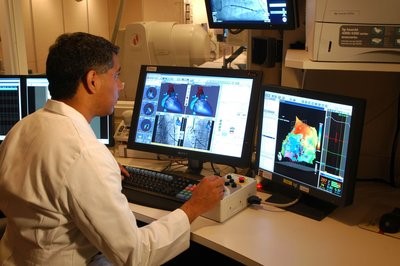When the first internal medicine and general surgery residents arrive in July 2019, they will quickly become an integral part of our patients’ healthcare teams. Each multidisciplinary team will be led by a Northeast Georgia Medical Center (NGMC) faculty physician and will include healthcare providers from a variety of hospital areas, such as nursing, pharmacy, case management, nutrition and social services. The patients at Northeast Georgia Medical Center will benefit directly from this thoughtful team approach to care.
The residency training programs at NGMC will bring several advantages to the health system, including:
Improved quality of care
Teaching hospitals have been shown to provide better care on average than non-teaching hospitals. In fact, a review of 23 studies of quality of care in teaching hospitals found that teaching hospitals had better quality measures than did non-teaching hospitals[1]. Residents’ curiosity and commitment to learning encourages attending physicians to stay updated with new medical discoveries and literature and to follow best practices more closely.
Access to the latest and greatest medical technologies
Teaching hospitals aim to be innovative and tend to adopt new technologies earlier than non-teaching hospitals. Teaching hospitals may have more resources dedicated to complex care issues, such as intensive care units, invasive cardiology procedures and advanced cancer treatment. Increased access to medical technologies is likely one factor leading to better survival rates and increased quality of care.
Decreased lengths of hospital stay for major illnesses
Teaching hospitals often have shorter average lengths of stay than non-teaching hospitals. Shorter lengths of stay result in part from effective treatments and reflect high efficiency within the hospital.
Better survival rates
Several studies have shown that overall patient survival is higher in teaching hospitals than in non-teaching hospitals. In fact, nine studies have shown a decrease in risk-adjusted mortality rates, which means that even though teaching hospitals take care of sicker patients, mortality is still
lower[2]. A recent study in the Journal of the American Medical Association (JAMA) found that the mortality rate for all hospitalizations was lower in teaching hospitals when compared to non-teaching hospitals. This reduction in mortality equates to saving 1 life for every 67 patients who were admitted[3].
Specialized surgeries
Teaching hospitals often act as referral centers for rare and severe medical cases and provide specialized care for millions of Americans each year. Because residents need to be trained to treat a variety of conditions, hospital teaching programs pose an opportunity to offer specialized care for those conditions.
Access to the expertise of experienced faculty, physicians and surgeons 24 hours a day
The inclusion of residents in healthcare teams means that there are even more medical doctors available to help patients around the clock. Research has shown that the more doctors in training per hospital bed, the lower the hospital’s patient mortality rate[4]. Teaching hospitals also attract high-quality physicians who further improve care going forward.
NGMC is excited for the launch of its residency program and the improvements it will bring. Click here to learn more about our commitment to training the next generation of physicians and to stay updated on the program.
References
[1] Kupersmith J. Quality of care in teaching hospitals: a literature review. Acad Med. 2005 May;80(5):458-66.
[2] https://news.aamc.org/patient-care/article/jama-study-finds-lower-mortality-rates-us-teaching/
[3] Mueller SK1, Lipsitz S, Hicks LS. Impact of hospital teaching intensity on quality of care and patient outcomes. Med Care. 2013 Jul;51(7):567-74.
[4] Acad Med. 2005 May;80(5):458-66. Quality of care in teaching hospitals: a literature review. Kupersmith J1.
Written by: John Delzell, Vice President of Medical Education and Designated Institutional Official (DIO)
About Northeast Georgia Medical Center’s GME program
Northeast Georgia Medical Center’s (NGMC) Graduate Medical Education program will begin receiving applications for the Internal Medicine and General Surgery Residency Programs in August 2018 and will match the inaugural class in the spring of 2019. The Northeast Georgia Medical Center Graduate Medical Education program is designed to train residents to be leaders in the medical field as well as in the community. All residents will receive education beyond the six core competencies with a unique focus on the patient experience and methodologies of a High-Reliability Organization and Lean principles. Learn more about the NGMC GME program.
About Northeast Georgia Health System
Northeast Georgia Health System (NGHS) is a non-profit institution on a mission of improving the health of our community in all we do. Our team cares for more than 800,000 people across the region through three hospitals and a variety of outpatient locations. Northeast Georgia Medical Center (NGMC) has three hospital campuses – NGMC Gainesville, NGMC Braselton, and NGMC Barrow – with a total of 713 beds and more than 700 medical staff members representing more than 50 specialties. Learn more at www.nghs.com.
Related articles
- GME program adds value to Gainesville and Hall County Communities
- Why did Northeast Georgia Medical Center start a GME program?

